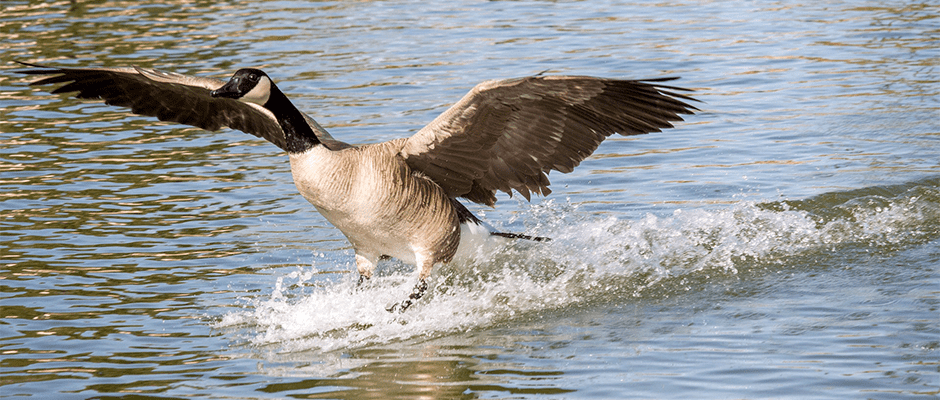Share this article
Report outlines new Canadian migratory bird regulations
The Environment and Climate Change Canada’s (ECCC) Canadian Wildlife Service (CWS) has released a report of recent changes to the country’s Migratory Bird Regulations for the 2018-2019 and 2019-2020 seasons.
The ECCC manages migratory game birds under the Migratory Bird Convention Act, a complement to the Migratory Bird Treaty Act in the United States. The Canadian regulatory process requires proposals for hunting regulations to be finalized by the end of February and passed into law in June, with reports of the changes released in July.
The changes vary between provinces, but one of the most common adjustments are increases to the daily bag limits for American black ducks (Anas rupripes). This species is managed under the American Black Duck International Harvest Strategy, an agreement between CWS and the U.S. Fish and Wildlife Service that was adopted in 2012.
A “liberal” management regime was adopted across most areas, which allows for a 30 percent increase in harvest limits over the 1997-2010 mean levels. The liberal strategy will also be implemented for the 2019-2020 season in several provinces. In Newfoundland and Labrador, Prince Edward Island, Nova Scotia and New Brunswick the daily bag limit was increased to six black ducks for most of the season. Due to increased harvest pressure at the end of the season, the daily bag limit is four for at least the last 30 days of the season, depending on the province. SImilar changes were made for Quebec and Ontario, with some differences based on the needs of the provinces.
Some changes were made to reduce instances of human-goose conflict. This includes an increased harvest for temperate-breeding Canada geese (Branta canadensis) in Ontario, a Spring season for temperate-breeding Canada geese and cackling geese (Branta hutchinsii) from March 1 to 10 in Manitoba and increased bag and possession limits for snow geese (Chen caerulescens) and brants (Branta bernicia) in regions of British Columbia.
The regulations also made several changes to increase hunting opportunities for various species across the country. A new hunting zone for sea ducks was created of the northern tip and western side of the Northern Peninsula of Newfoundland in order to increase opportunities to hunt common eider (Somateria mollussima) in Newfoundland and Labrador. The Nova Scotia seasons for ducks and sea ducks were extended.
In New Brunswick, the season for ducks and snipe was extended, as was the end of the hunting season for ducks, geese, sandhill cranes (Grus canadensis), woodcock (Scolopax minor), snipe and coot in areas of Manitoba. In Quebec, the seasons for eiders and long-tailed ducks (Clangula hyemalis) were extended and combined.
In Ontario, the length of the mourning dove (Zenaida macroura) season was increased to 91 days from 70 in order to be more consistent between management units. The synchronized opening dates for woodcock and ruffed grouse (Bonasa umbellus) was set at Sept. 15 across the province. The changes also clarified the daily bag limits for marsh game birds and some types of geese.
Another change would clarify the ways Eurasian collared-doves (Streptopelia decaocto) are managed. Currently, the species is protected under the MBCA despite being an invasive species because they were not known to occur in Canada in 1991 when they were listed. A new change would establish a hunting season for collared-doves in areas of British Columbia that allow take of mourning doves. Since the species are often confused and under previous regulations hunters would be committing an offense for harvesting a collared-dove during mourning dove season, the change would decriminalize take of an invasive species.
The bag limit for the two species would be aggregated to prevent additional harvest of mourning doves.
Learn more about specific regulation changes for each province at canada.ca.
Efforts to modernize the MBCA are currently underway.
Header Image: Migratory game birds like Canada geese are managed under the Migratory Bird Convention Act in Canada. ©GregReese








